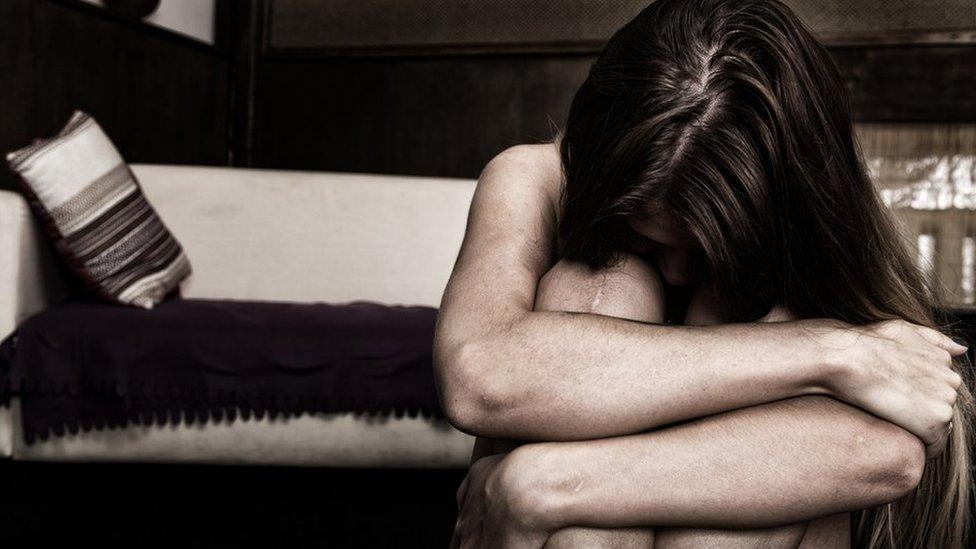Domestic abuse: Mother says violence led to suicide attempt
- Published
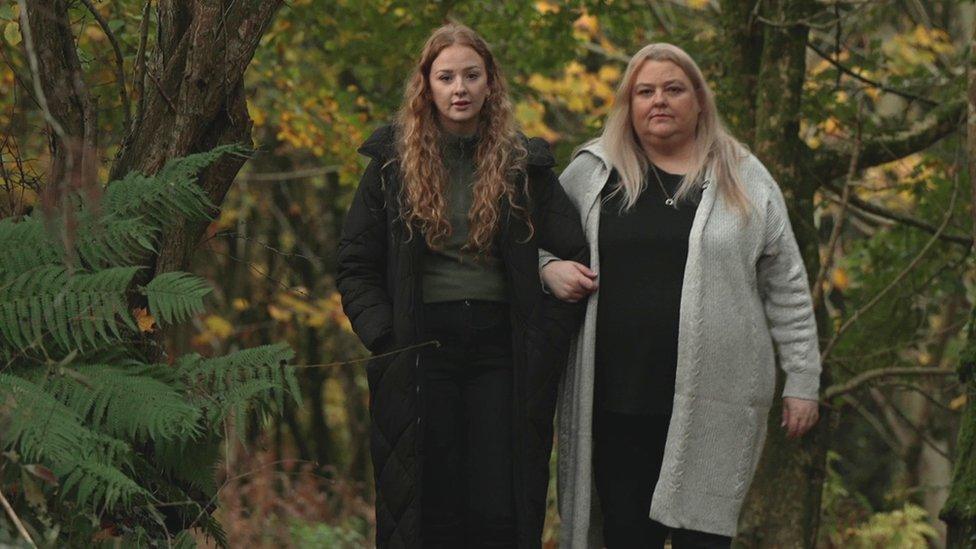
Sharon and Ellie Vaughan say domestic abuse had a serious impact on their mental health
A County Tyrone mother has told of the "horrific" abuse that she claims led to her trying to take her own life.
Sharon Vaughan said treatment by her ex-partner severely affected her mental health and that of her children.
Her comments came in a BBC Spotlight programme in which a leading women's charity called for a change in the law.
It would allow for prosecutions to be made if there's a proven link between domestic abuse and a suicide.
Similar laws have already been introduced in France, where perpetrators can be jailed for up to 10 years if their actions led the victim to kill or attempt to kill themselves.
The Women's Aid Federation fears legislation will not be introduced in Northern Ireland in the absence of a power-sharing government at Stormont.
Last year, a coroner said the link between domestic abuse and suicide needs to be better recognised following the death of a woman in East Yorkshire.
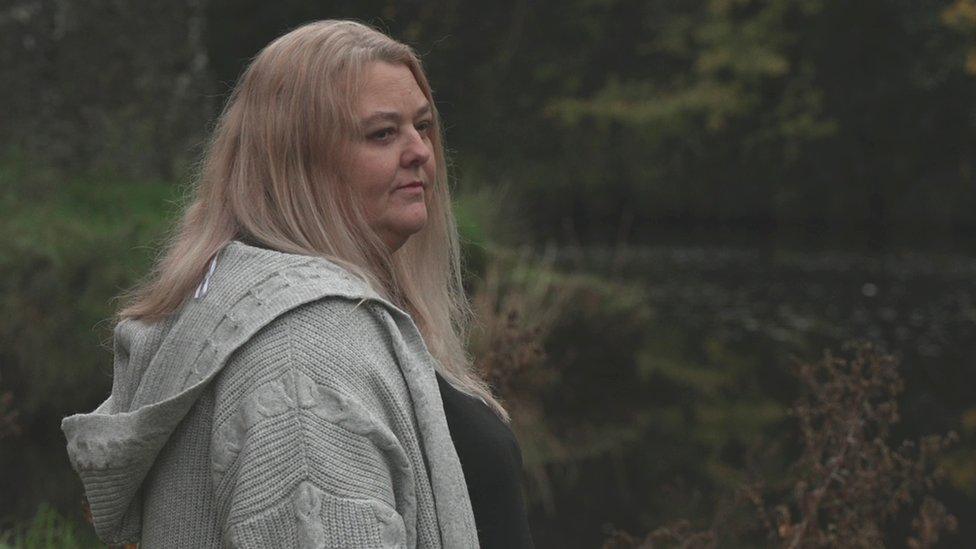
Sharon Vaughan now works with other women who have suffered domestic abuse
Sharon claimed her former partner, with whom she had four children, used to violently shake her, making her fear for her life.
"It's horrific. It's totally draining, it just drains your whole life from you," she said.
"As the years went on, and I suppose the abuse increased, my mental health got worse."
BBC Spotlight put the claims made in the programme to the man allegedly involved, but did not get a response.
'Totally changes you'
Sharon described the level of abuse and controlling behaviour as "pure terror".
"It did take me a while to register that the relationship was abusive because he had a very good way of explaining things away.
"He could always justify his actions or put the blame on something else and then I would excuse his behaviour."
She added: "It just totally changes you as a person."
Sharon's four children were at risk of physical and emotional abuse from their father, according to a social services assessment.
The children were all placed on the child protection register.
It was later agreed their father would have limited access to help care for the children.
Two victims of domestic abuse speak out
Sharon's daughter Ellie said she felt "stuck", describing her childhood as "a mix of emotions".
"It's as if you want to do something but also, you're that child that just can't," she said.
Ellie believes living in an abusive household contributed to her developing an eating disorder.
"When I went into secondary school I couldn't cope, like I needed control," she said.
"I would literally wake up buckled with hunger pains, I wouldn't be able to go to college because I was crying all the time, I was constantly emotional.
"I couldn't walk to the college because by the time I got there I would nearly pass out."
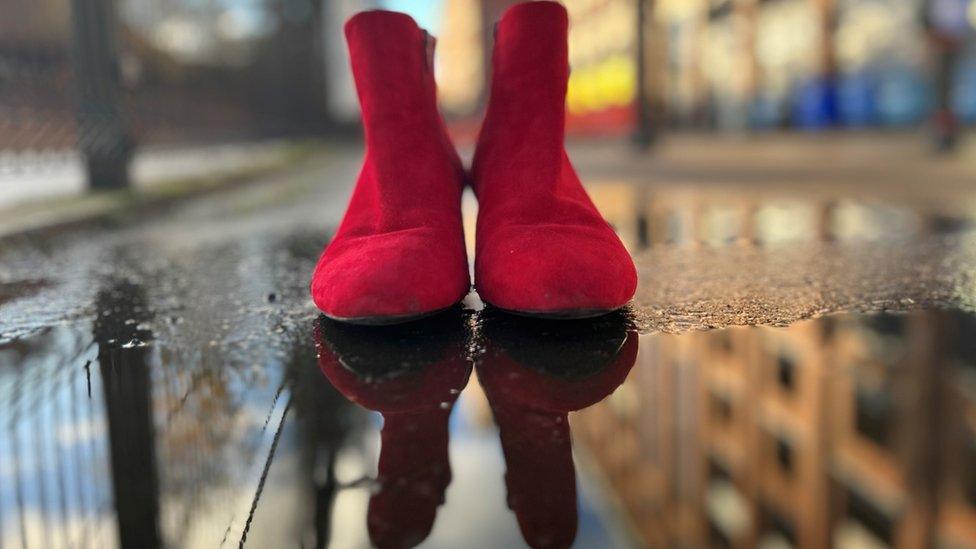
Campaigners have been leaving pairs of red shoes in public spaces to highlight the number of women lost to violence
Since 2021, the Police Service of Northern Ireland (PSNI) has made 13,000 referrals to schools as a result of domestic abuse incidents.
Sonya McMullanz, from the Women's Aid Federation, said there is growing support to change the law to make abusers accountable when their victims take their own lives.
"The evidence would have to be really, really good from the police," she said.
"The women who have died by suicide, we want them to be accounted for in our femicide reports.
"We want their families to have that recognition that, actually, this was a contributing factor in the death of their loved one."
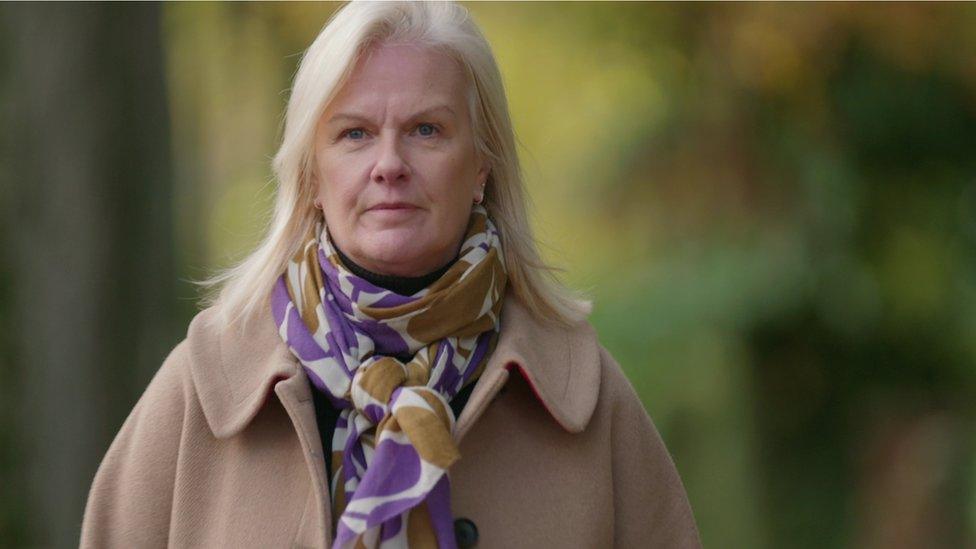
Sonya McMullan from Northern Ireland's Women's Aid Federation
"They're the lost women, they're never even going to be a statistic," said Marie Brown, chief executive of Foyle Women's Aid and the Foyle Family Justice Centre in Londonderry.
"Think of a woman that's living with her perpetrator day in, day out and having the same crime perpetrated against her.
"It's going to be more intense, the impact is going to be worse and why aren't we recognising that mental unwellness comes with domestic violence."
'Grave area of concern'
District Judge Barney McElholm, who deals with many domestic abuse cases in Londonderry, said society had a duty to victims and their families "to look into these cases and establish what happened".
Mr McElholm stressed he was speaking in a personal capacity, rather than as a judge, but added: "I would suggest very strongly that this is a grave area of concern."
He said that the government should look at whether there is a need for new laws and, if so, what they should be.
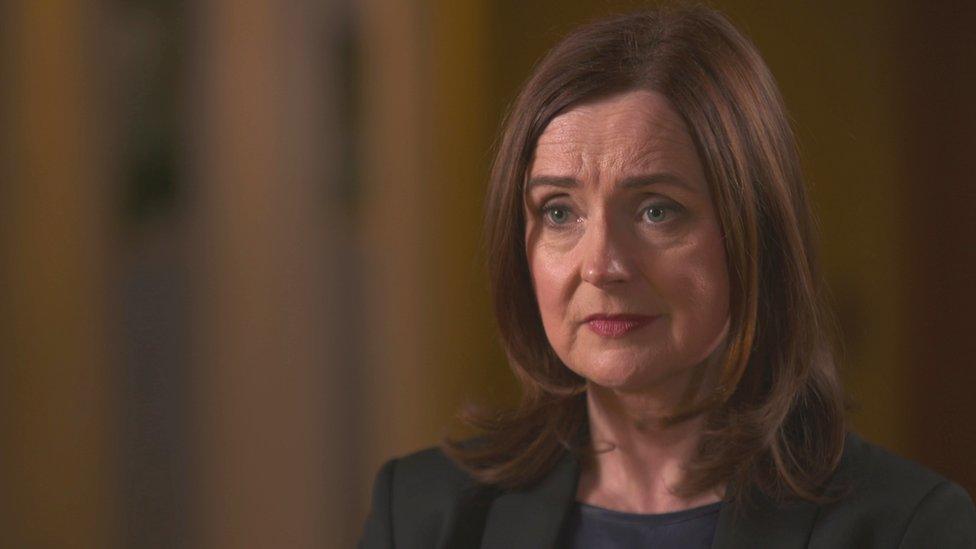
Northern Ireland's mental health champion Prof Siobhan O'Neill
Northern Ireland's mental health champion, Prof Siobhán O'Neill, said people living in abusive households could be classed as a specialist group in the suicide prevention strategy, external.
It is due to be reviewed in 2024.
"We don't have enough data on this to really understand what the numbers are and how many women have sadly died by suicide, who have been in these terrible situations of domestic violence," Prof O'Neill said.
"That data is not captured in any systematic way at the minute, but there is lots of anecdotal evidence of people who are trapped in situations like this where they feel suicidal and feel that they have no other way out."

If you have been affected by issues raised in this article, there is information and support available via the BBC Action Line.

You can watch BBC Spotlight's The Fear Inside on the BBC iPlayer now or on BBC One Northern Ireland at 22:40 GMT on Tuesday 28 November.
Related topics
- Published4 November 2022
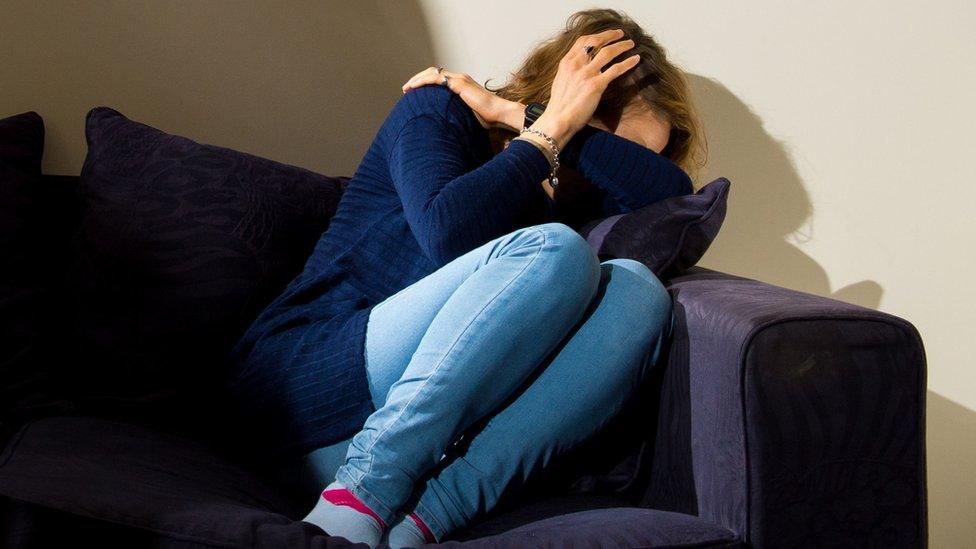
- Published21 July 2020
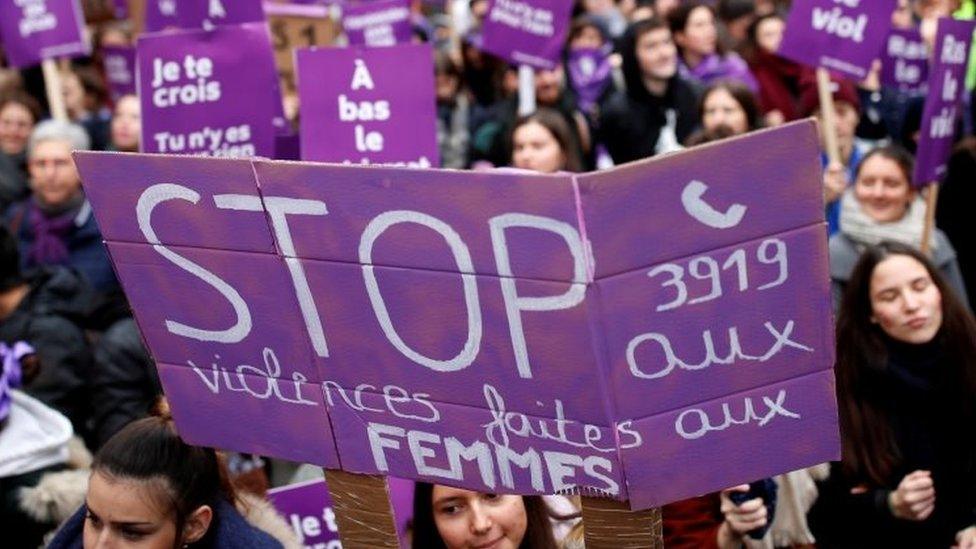
- Published16 January 2023
